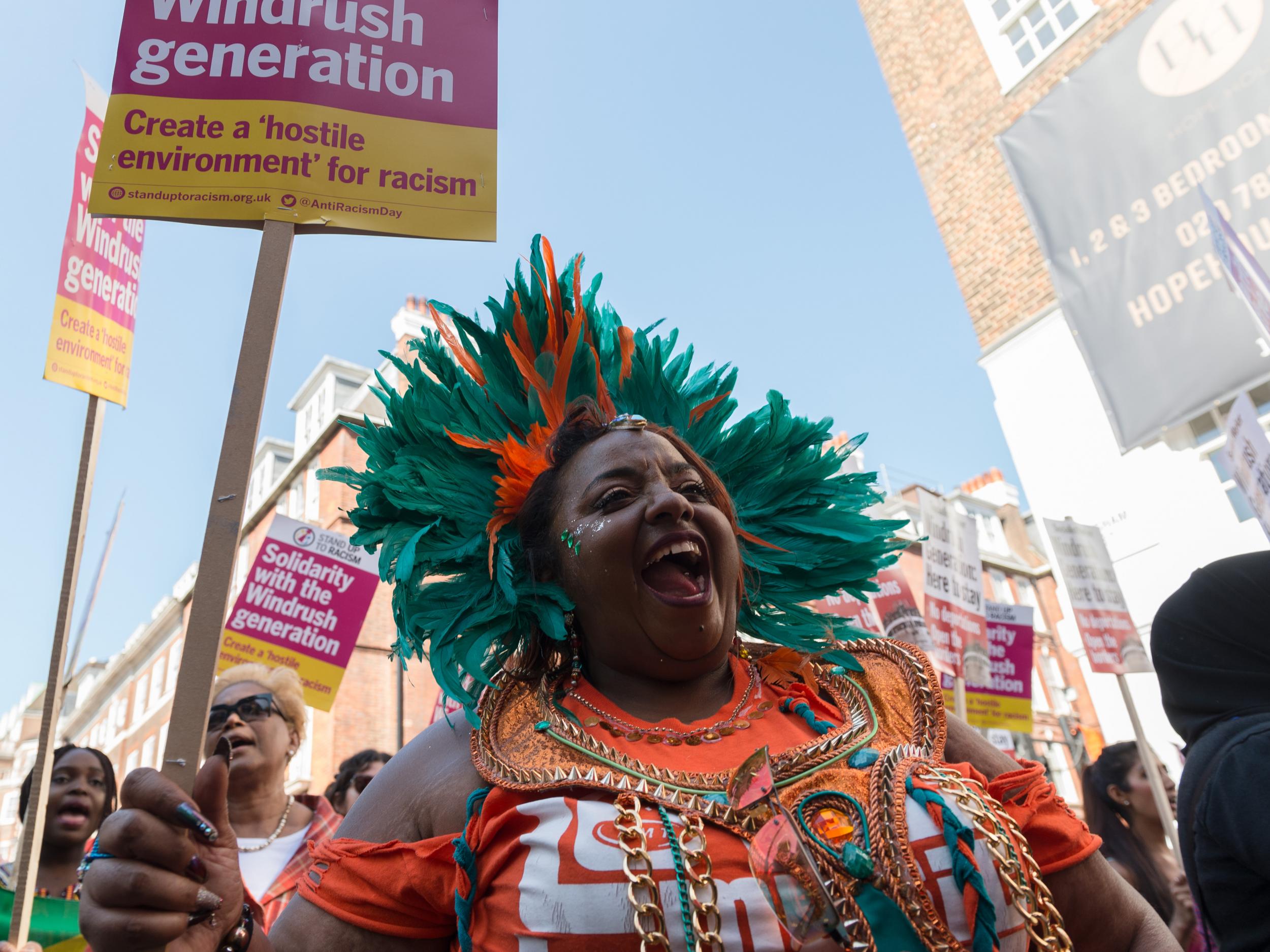If progressive politics is going to move forward, we need to listen to black British people
Just as the community protested against the Windrush scandal, it is able and ready to do so again. Yet the weight of its voice is consistently relegated to the background, writes Bonnie Greer


Your support helps us to tell the story
From reproductive rights to climate change to Big Tech, The Independent is on the ground when the story is developing. Whether it's investigating the financials of Elon Musk's pro-Trump PAC or producing our latest documentary, 'The A Word', which shines a light on the American women fighting for reproductive rights, we know how important it is to parse out the facts from the messaging.
At such a critical moment in US history, we need reporters on the ground. Your donation allows us to keep sending journalists to speak to both sides of the story.
The Independent is trusted by Americans across the entire political spectrum. And unlike many other quality news outlets, we choose not to lock Americans out of our reporting and analysis with paywalls. We believe quality journalism should be available to everyone, paid for by those who can afford it.
Your support makes all the difference.There is no question that black voices were marginalised in the 2019 election campaign.
This marginalisation has been a concern of mine for some time, and the campaign made this abundantly evident. There is no question, too, that the Grenfell tragedy remains a deep and festering wound in society because black people are at the back of the queue.
While it is fine that these voices can be heard in sport and entertainment, the need for a polity – one largely composed of the descendants of slavery – is necessary for balance and correction. The lack of these voices, their covert and overt suppression, is an aid to the rise of nativism – that belief that something inherently British exists in the warp and woof of UK society. Even in the blood.
It can be said that we descendants of the largest instance of human trafficking in history – the transatlantic slave trade – tend to see Western society simultaneously as a macrocosm and microcosm: the macrocosm of the historic and overwhelming event of our arrival, and the microcosm of our staying and living and being.
This tendency explains why, for example, African Americans tend to be moderates. We have seen both angles of the whip.
In the UK, there is little data on whether or not black people vote largely from the middle (although the majority of ethnic minority voters supported Labour in 2017). But what is clear from my own observations, is that given our likely more pragmatic point of view, we tend to be rendered invisible. The centre is never glamorous, nor contentious, nor newsworthy.
This is not necessarily to be angry, nor to apportion blame. These things are complex, multi-layered, and need to be handled with care and kindness. But the diminution of the black voice outside of the arena of public taste and entertainment leaves the entire society not only mute, but in a dangerous place.
Boris Johnson can allow a term like “watermelon smiles” to appear again out of his past and fade into the background like some childhood utterance. That this happened is one example of the forensic lack of the black voice. The black British voice.
People can and did protest, did point out that perhaps the man was not fit for the high office that he aimed for. Just as voices protested the Windrush scandal, a stain on a modern democracy, voices are there and able and ready. Yet their weight, their agency, is relegated to the background, to the footnote, to the ether.
Yeats wrote his most-quoted; perhaps most pilfered poem The Second Coming with a poet’s eye and heart about what he sensed was on its way:
“Turning and turning in the widening gyre; The falcon cannot hear the falconer.”
The gyre, in other words, the whirlpool, is our civil society – our multicultural society swirling around the edge of the societal and spiritual circular drain that for too many, this United Kingdom has become.
The falconer is our movement, as human beings, towards some sort of sanity and perhaps peace. The “falcon” is our very humanity – that quality, that “itness” of us which distinguishes us from other animals. Who, as far as we understand, have no need for a balancing factor. No need for a kind of coherence.
The centre holds the balance. The centre defines the opposite end of it. Keeps those opposite ends in check. Without a centre, there is no real left nor right. Just positions in opposition to one another.
Both left and right can talk about the state ownership of property, but only a centre can define what this means in relation. Not because the centre can “see” both sides, but because the centre knows that there are two sides. And that they exist, not independently, but in opposition to one another. One implies a state without connection. The other is deeply bound up in connection.
I think that to be black here is to understand balance. This nation now needs the black British voice more than ever.
It needs its history, its experience.
It needs its clarification.
Bonnie Greer is a playwright, novelist and critic, as well as the chancellor of Kingston University. She is also curating ‘The Era Of Reclamation’ at the British Museum throughout January and February. One event will be about the British African Caribbean voice

Join our commenting forum
Join thought-provoking conversations, follow other Independent readers and see their replies
Comments